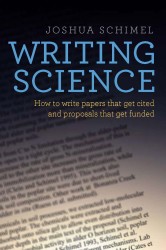“Othering” by Implication
I initially included this post as a subscript to my piece about Environmental Research Letters’ recent announcement that they now publish “evidence-based reviews.” I commented that I was shocked and even offended, because it had never occurred to me that there could be any other type of review in a science journal: “non-evidence-based reviews”? Those, of course, do not exist.
When you create a new category (of people or things), you never create only one—you create two: the in-group and the out-group. This is a form of “othering,” which the Oxford English Dictionary defines as “to conceptualize (a people, a group, etc.) as excluded and intrinsically different from oneself.”
When you create a new group identity, it is at best naïve to ignore what that suggests about the people or things that remain outside. If your group name implies “better,” the out-group, now “worse group” will inevitably, and justifiably, feel offended.
Not every case of othering by title, however, implies better. Sometimes the problematic implications are less obviously prejudicial.
We had such a case recently at the University of California, where we have a category of faculty titled “Lecturer with Security of Employment” (LSOE). For those who know how lecturers are often treated in universities, that may sound like indentured servitude, but in fact LSOE’s are full faculty, but with no requirement to do research. Their primary focus is teaching and their job is thus much like a professor at a liberal arts college. LSOEs are members of the Academic Senate and are on pay and benefit scales that parallel Professors. SOE is effectively tenure; before that the title is lecturer with potential security of employment. We value LSOEs and we wanted a title that better expresses that.
The obvious title was “Teaching Professor” but here is where we ran into the “evidence-based” conundrum in defining new categories: if some people are “Teaching Professors,” what are the rest of us professors? Would we be, by implication, “non-teaching professors”?
That, of course isn’t true—teaching is an organic responsibility of being a UC Professor. We worried that implying that regular professors don’t teach could feed the public’s worst misconceptions about the University! Creating the formal title of “Teaching Professor” we feared, could backfire and damage UC. We settled on a compromise: LSOEs can unofficially call themselves “Teaching Professors” but the official title remains LSOE.
We do have “Research Professors” who have no teaching obligation, which is partly why “Teaching Professor” seemed an obvious title, but research professors are typically soft-money, supported off research grants. And there, the flip does no public damage: if you’re not a research professor, does that mean you teach?
Language is tricky—its casts light on things, but in so doing, creates shadows. We interpret both. When you create terms that cast light on some people, you necessarily “other” others. So be sensitive to the language and the likelihood of offense. Consider not just the light you cast, but everyone else who will suddenly feel themselves in shadow.


Leave a comment